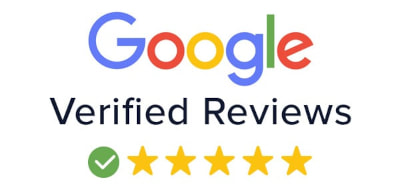Why You Struggle With Accountability and How to Actually Change
The psychology of upgrading your mindset in order to change thinking and behavior habits
|
Being in business can be very liberating. You run your own show. You make the decisions about what you will do. You reap the rewards of your success. But there is another side that’s not so liberating. Much of the time you operate alone. You may not always be confident about the decisions you must make. And when failure strikes, the results are all yours as well.
This is where lack of accountability can create a mindset that takes away your control, limits your optimism and prevents you from coming back from the brink. What causes us not to be accountable?Throughout our growth years, we’ve learned to be accountable to someone else. As young children, we must do what our parents tell us or punishment might befall us. As students, we must do what our teachers tell us or our grades might be affected. As employees, we must do want our bosses tell us or our jobs might be in jeopardy. Our understanding of being accountable for our actions is driven by our need to comply with the demands of others. No one shows us how to be accountable to ourselves, right?
While lack of training in being accountable to ourselves may be one element, another may be our own resistance to calling ourselves out on the decisions and choices we make. When we avoid being accountable, we make a conscious decision not to do something and then another decision to downplay the importance of not following through. Done repeatedly, we develop a habit of convincing ourselves that not doing what we say we will do has no real consequences. This level of avoidance and denial, to the contrary, has real severe consequences on our ability to maintain trust with others and a stable level of conviction within ourselves. Even when we know we're not accountable, we justify it!By the time we realize that our own level of accountability has not only affected our jobs or businesses and the trust we need from others has dwindled, we may feel the need to defend our own shortcomings as a matter of pride.
We may even go as far as blaming others for the things that did not happen because we did nothing to make them happen. Most of the people I work with know what the right thing to do is. They understand why it’s important to do certain things and they realize (intellectually) what will happen if they don’t. Even with all this awareness, they still choose to avoid being accountable to themselves. So they call me in hopes that being accountable to someone else will turn things around. What to do if you struggle to hold yourself accountable
If not being accountable is what’s getting in the way of the results you want, you can reverse this bad habit. It won’t happen overnight but it will happen if you are willing to change.
Step #1: Being accountable requires the right perspectiveFirst, recognize that the reason you choose to do some things and not others is because your perception maybe influenced by reward and consequences. This has to do with your early exposure to being accountable to others. There's always a reward or consequence for the decision you make.
Now that you have to be accountable to yourself, you need to revise your perspective to one of mainatining a high standard of integrity. When you act as you have committed, you build a sense of accomplishment based on the feeling of knowing you were true to yourself. This is a huge confidence builder that develops over time. Step #2: Know your limitsBe conscious of what you are committing to. Some of the problem with accountability stems from overextending yourself which gives you ‘permission’ not to do the things you agreed to because you find yourself overloaded.
A good way to control over-committing is to define your priorities and time devoted to them. This way, you can evaluate potential commitments based on their importance and not on the open space you might have on your calendar. And of course, learn how to tactfully and professionally say 'No' to 'feel good' but less important endeavors. Step #3: Find other things/ people to be accountable toSince many of us have been conditioned to be accountable to others, set up other areas to be accountable to. If keeping appointments is difficult, use a calendar to lock them in. In fact, using a calendar for all of your committed activities (even tasks you do for yourself) is a great way to learn to hold yourself accountable. Finding a colleague with similar shortcomings and an equal desire to change is also a great way to learn to be more accountable. This is called a buddy system.
Conditioning yourself to follow through with promises you make is the main behavior that improves accountability. Using other tools or people to help faciliate greater self directed action is an effective way to become more accountable. Step #4: Implement deadlinesA good accountability practice is to place deadlines on everything. Without deadlines, things usually get pushed aside for more immediate tasks that pop up. When this happens, you will likely attend to what is urgent before you work on what is important. Urgent always finds a way to override important.
Be careful with scheduling activities too tightly. Give yourself room between activities and tasks for a break. Sometimes, 10 minutes can make all the difference when it comes to staying on track. Working too long without a break creates fatigue and fatigue will sabbatage acountability continuously. When you are tired, your brain minimizes important tasks and allows you to put them off. Step #5: Learn from your failuresFinally, give yourself permission to fail. Sounds odd especially when running a business. People equate failure with some sort of financial loss or other damaging setback. But in our daily lives, we fail to accomplish all sorts of things we attempt to do or tell ourselves we must do. Use failure as a tool for learning about yourself and changing how you decide on commitments, actions, expectations, etc.
Changing habits requires being intentional with commitmentsLearning to hold yourself accountable takes effort, focus and above all a commitment to change. If the success you seek is meaningful enough, the change should be worth the effort.
Once you become more confident about your ability to set goals, complete agreed upon tasks/ activities or show up for appointments and actually accomplish what you set out to do, the mental and emotional feelings will provide the motivation to keep perfecting your ability to be accountable to yourself. One of the reasons many people fail to achieve their dreams or even things that are important to them is lack of accountability. They are simply not taking responsibility for their choices or lack of action on things that are critical to their success. Sound familiar? It’s one of the main reasons I do what I do. I provide that missing accountability factor so business owners can break through the circumstances that hold them in place. But holding you accountable to do what you say you will do is a short term fix. The real challenge is to learn to be accountable to yourself!
|
Business Wingmen Podcast
Join us every Tuesday at 4pm for new episodes or visit our podcast library and listen to everything!
Need a Leadership
Tune-Up? Check out my new bok on the leadership principles that will mmae you sucessful "I engaged Steve for 6 months of weekly coaching sessions at which he was able to give me advice and ideas about marketing (guerilla, social media, and traditional), pricing, customer experience, hiring, personnel issues, and other random topics that came up in the normal course of running a small business.
He was also available outside of our sessions if I ran into anything that was more urgent, and that availability was greatly appreciated. One thing I really appreciated was that Steve was able to help me clarify where the issue really was (e.g. on the surface it may have seemed to be a client issue, but with some good questions from him it became more clear that the issue was more of a staff issue instead). He helped guide me on a number of issues so I was able to focus on more specific solutions and that probing let me not spin my wheels looking for solutions. Steve’s ability to help really clarify the issues I was facing has spared me a lot of headaches and saved me loads of dollars as well. I highly recommend his service. - Lea Chicoine- BISHOPS |
About the Author:
Steve Smith is an experienced business & executive coach and President of GrowthSource Coaching based in Orange County, CA. Steve works individually with business professionals who want to achieve top tier effectiveness in the organizations they run. Steve graduated from Frostburg State University with a degree in business management. In his spare time, Steve writes articles from a variety of business publications, travels with his wife on his motorcycle and cares for his adopted greyhound.
Steve Smith is an experienced business & executive coach and President of GrowthSource Coaching based in Orange County, CA. Steve works individually with business professionals who want to achieve top tier effectiveness in the organizations they run. Steve graduated from Frostburg State University with a degree in business management. In his spare time, Steve writes articles from a variety of business publications, travels with his wife on his motorcycle and cares for his adopted greyhound.







